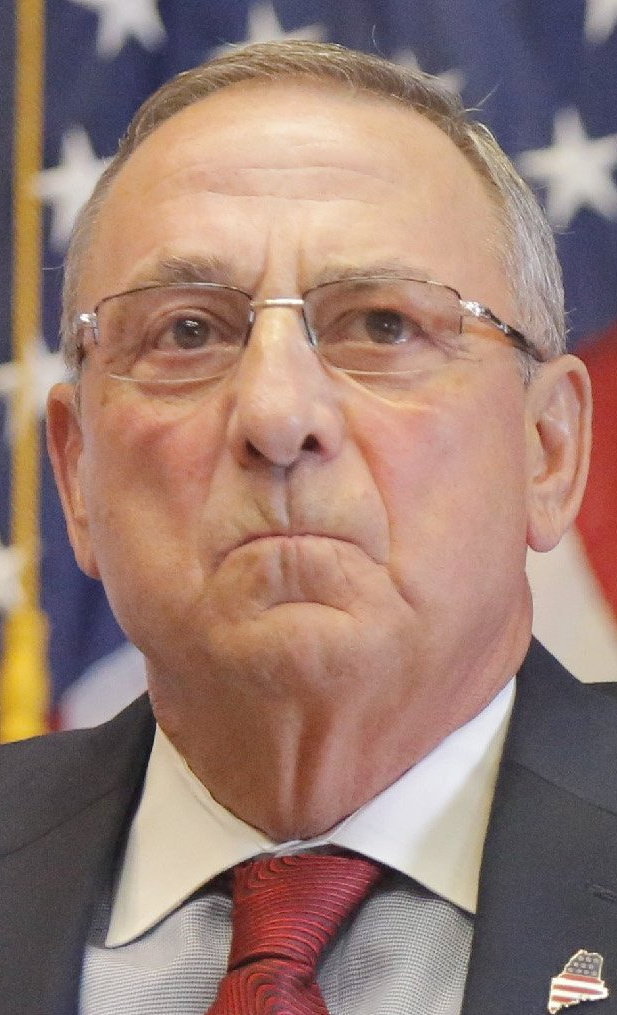Gov. Paul LePage said Thursday that his administration will pursue a range of reforms in the state’s child protective services system, including a renewed effort to impose criminal penalties on professionals such as teachers, doctors and others who are required to report suspected child abuse or neglect and fail to do so.
In an appearance before the Legislature’s Government Oversight Committee, the governor also said the state had to replace an outdated computer system in the Department of Health and Human Services with a faster system in order to improve communication and allow quicker access to case files.
And he said he would be willing to call the Legislature back into session this summer if changes are needed in Maine law – including a measure that would put the interests of children ahead of family reunification.
“Placing the priority on family reunification forces the system and the courts to try to keep vulnerable children in a family when the best thing would be to remove the child from the situation,” LePage said in a letter to the committee. “Parents who are unable or refuse to effectively take on the challenge of parenting should not be forced by the government to remain with the child, leaving the child vulnerable to neglect and abuse.”
But one national expert in child protective systems raised concerns about Maine turning away from family reunification, saying there is overwhelming evidence that keeping children in families when possible is best for them.
The state’s Child Protective Services division, a part of DHHS, has been under intense scrutiny since two girls who suffered prolonged abuse died within a three-month period from late 2017 to early 2018: Marissa Kennedy, 10, of Stockton Springs, and Kendall Chick, 4, of Wiscasset. Their parents or caregivers are facing criminal charges.
ARGUING AGAINST REUNIFICATION
Last week, the Legislature’s watchdog agency, the Office of Program Evaluation and Government Accountability, issued a report on the deaths to the oversight committee. OPEGA faulted DHHS for not following its own procedures and failing to share information at key points in its handling of abuse reports involving the girls.
But the OPEGA report was greeted with frustration because confidentiality laws and the pending criminal investigations into the deaths prevented the agency from sharing details about the girls’ cases.
On Thursday, LePage gave the key statements in a six-hour hearing held by the committee.
“I want to make sure these children did not die in vain,” said the governor, whose administration ends in less than eight months. Dozens of child abuse experts, as well as parents who have had their children taken into state custody, also spoke to the panel.
LePage, who has told his own story of abuse at the hands of his father, said reunification in his own situation would not have worked. “Having been in that world, had I been reunified with my family a third time, one of us, my father or myself, would not have lived to maturity,” LePage said. “Because it was not appropriate. Reunification should be a tool in helping get what is best for a child. Just like a foster home is, adoption is – but reunification should not be the priority.”
CRIMINALIZING FAILURE TO REPORT
He said failing to report child abuse should be considered a Class E misdemeanor, punishable by up to six months in jail and up to a $1,000 fine. The penalty would apply to professionals such as doctors, teachers, nurses, police officers and others who are mandated by law to report suspected child abuse or neglect.
LePage sought to criminalize a failure to report suspicions of child abuse previously in his administrations, but the measure did not make it through the Legislature.
Many others who testified said they agreed that Maine’s system needs reform. However, they also offered counterpoints to some of LePage’s assertions.
Dr. Lawrence Ricci, medical director of the Spurwink Child Abuse Program and one of 400 certified child abuse pediatricians in the U.S., said mandatory reporters of child abuse are not getting updated training. He also said there is frustration among those on the front lines of child abuse – especially hospital social workers – who are often unable to convince intake workers at DHHS to open cases when suspected abuse is reported.
Ricci said he was “on the fence” when it came to criminalization for those who fail to report. “If criminalization were to lead to better reporting practices, I would say, ‘Let’s do it,’ ” Ricci said. “But it’s sort of like saying criminalizing drunk driving has led to less drunk driving, or criminalizing abusing a child has led to less child abuse. I’m not sure that’s true.”
QUESTIONS ABOUT STAFFING LEVELS
Lawmakers on the panel also seemed to focus on staffing shortages within Child Protective Services. Sen. Nate Libby, D-Lewiston, said there are about 300 positions in the office but 30 are vacant. Others said it was unclear if those positions were being left vacant to save money or if they were just too difficult to fill.
Other witnesses testified that child protection workers at DHHS have annual attrition rates of close to 30 percent.
Mark Moran, a licensed clinical social worker at Eastern Maine Medical Center in Bangor and a former child protective services caseworker, now serves as chairman of the state’s Child Death and Serious Injury Review Panel. He asserted that the Office of Child and Family Services was dangerously understaffed.
He also pointed to long wait times on the child abuse intake hotline, saying that in one case a hospital worker waited 90 minutes before being connected. “This is a significant enough period of time to be viewed as a potential barrier to the reporting of child maltreatment,” Moran said.
‘A PRE-LOGAN MARR MENTALITY’
DHHS has pursued family reunification as a goal in child abuse or neglect cases since 2001, when a highly publicized death of a child who had been placed in a foster home undermined faith in the foster care system.
Richard Wexler, executive director of the National Coalition for Child Protection Reform, a Washington-based think tank, raised concerns in an email about LePage’s stance on family reunification.
Wexler referred to 5-year-old Logan Marr, who died in Chelsea in 2001 after being found in a tipped-over high chair in the unfinished basement of her foster parent, who was later convicted of manslaughter.
Logan’s death spurred a number of reforms in Maine that emphasized keeping children with parents or relatives when possible.
“These recommendations, and the approach of DHHS and the LePage administration as a whole, reflect a pre-Logan Marr mentality,” Wexler said of the administration’s new position.
DHHS REPORT SUGGESTS REMEDIES
DHHS released an 11-page report Thursday detailing how the agency has responded to improve weaknesses in the child protection system. The changes include more training for caseworkers, hiring two managers to oversee caseworkers, improving intake procedures and consulting with psychologists on cases, among other reforms.
The agency did not recommend hiring additional caseworkers. The caseworker workforce in Maine has remained flat while the workload has increased, according to a U.S. Department of Health and Human Services report. In Maine, completed child abuse investigations per worker per year have jumped from about 50 a decade ago to more than 70 under the LePage administration, including 73 in 2016, the latest year measured.
Maine had one of the lightest caseloads per worker in the country a decade ago, and now it’s about the national average, according to the federal report.
The number of children in state care in Maine has increased 40 percent since 2011, according to DHHS, from 1,322 in 2011 to 1,852 in 2017. However, that is still much lower than the early 2000s, when about 3,000 children were in state care.
Physical abuse cases increased 52 percent from 2008 to 2016 – from 686 to 1,042 – while reports of suspected child abuse and neglect jumped 31 percent, from 6,313 cases in 2008 to 8,279 in 2016.
Scott Thistle can be contacted at 713-6720 or at:
sthistle@pressherald.com
Twitter: thisdog
Send questions/comments to the editors.







Success. Please wait for the page to reload. If the page does not reload within 5 seconds, please refresh the page.
Enter your email and password to access comments.
Hi, to comment on stories you must . This profile is in addition to your subscription and website login.
Already have a commenting profile? .
Invalid username/password.
Please check your email to confirm and complete your registration.
Only subscribers are eligible to post comments. Please subscribe or login first for digital access. Here’s why.
Use the form below to reset your password. When you've submitted your account email, we will send an email with a reset code.